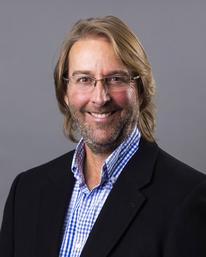Buying a new piece of equipment for the home sends consumers to any number of online product review sites or getting recommendations from friends.
But there’s no Consumer Reports or helpful neighbor for industries making million-dollar equipment purchases, especially if the equipment processes widely varying natural materials, like minerals or forest resources. That’s why NRRI often partners with industrial equipment manufacturers to test their large-scale processing equipment in material-specific demonstrations for potential customers. This service reduces risk to both the manufacturer and the customer.
“We do equipment testing with materials the end user will be processing,” explained Kevin Kangas, Director of NRRI’s Coleraine Labs. “With different material inputs, they can’t make decisions off equipment specifications or references from others. In the minerals industry, the ores are different all around the world. Same with the forest products industry – the trees are different and variable.”
NRRI recently wrapped up a demonstration of a screening process applied to mine tailings processing for a Mexican client in collaboration with equipment supplier, Derrick Corporation of Buffalo, New York. The client shipped a ton of tailings material to NRRI-Coleraine that was tested on Derrick’s SuperStack® Sizer with various screen sizes.

“We’re set up with the building space and infrastructure – overhead cranes and forklifts to move equipment around – a solid crew that can put the equipment together and highly skilled research technicians to run the tests,” said Kangas. “Our applied, pilot-scale testing helps to de-risk capital investment in major equipment purchases.”
The screening equipment tested at NRRI is a new model by Derrick Corp. with better energy efficiency and a closed circuit to recycle the water used in the process. NRRI does not advocate for the equipment supplier. Instead, NRRI’s role is as an objective third party, to supply the data needed to make informed decisions.
“Having NRRI test our new SuperStack® Sizer has unlocked novel opportunities for our company and our clients,” said Rafael Peraza, Derrick Corp. Regional Sales Manager, Mining & Industrial Division. “NRRI’s full scale testing capabilities has played a vital role to confirm our value proposition in terms of higher product grade, recovery and capacity for our end users.”
Industrial briquetting equipment manufactured and sold by Komarek, a Koppern company out of the Netherlands, is another example of equipment demonstration. NRRI collaborated with Komarek to carry out a variety of research projects in the fields of solid biofuels, agricultural soil amendments, and reprocessing residuals from steel making operations in the Institute’s Biomass Conversion Laboratory.
“Our goal is to help resource-based companies advance their technologies, especially as it relates to energy efficiency, reducing water use or reducing emissions,” Kangas said. “That fits well within our mission to deliver integrated research solutions.”
Another large-scale industrial partner is Heyl Patterson Thermal Processing, manufacturer of NRRI’s two-foot diameter, 20-foot-long rotary kiln. This unit is used for thermally processing large quantities of woody and agricultural biomass into materials suitable for application in energy, agriculture, silviculture and water treatment. NRRI collaborates with Heyl Patterson and its clients to demonstrate capabilities of this process equipment.
In 2019, NRRI acquired a High Pressure Grinding Roll (HPGR) unit from Weir Minerals that crushes rocks for a variety of further processing. The process offers significant improvements in energy efficiency and helps to reduce greenhouse gas emissions. The HPGR unit has been used steadily to process mineral samples from Minnesota and several other states. This allows researchers to determine if the ore is amenable to high pressure roll crushing, identify the mineral composition and test a variety of pressures and roll speeds.
“Third party testing is very important in industry,” said NRRI Executive Director Rolf Weberg. “And we value the work because it gives us experience with new equipment and broadens our understanding of new processes. Our synergy with industry helps to bring new technology into Minnesota.”